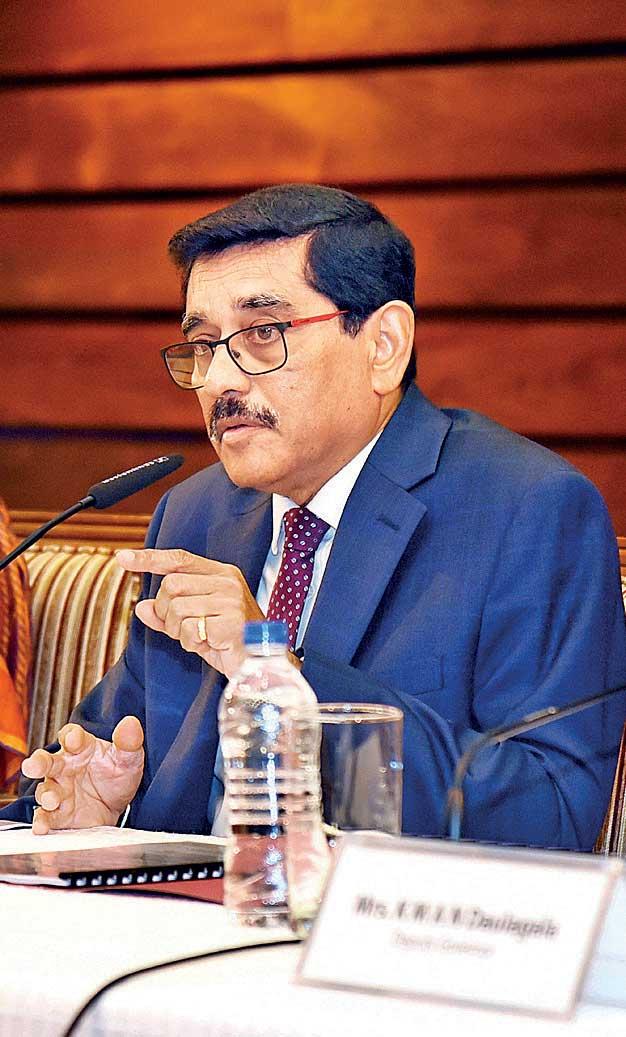16 Jan 2024 - {{hitsCtrl.values.hits}}

Dr. Nandalal Weerasinghe
The banks are set to receive guidelines for the establishment of business revival units, aimed at assisting the small and medium enterprises (SMEs) affected by the recent crises.
Despite this initiative, the Central Bank has expressed a stance against the creation of distinct banks or institutes exclusively dedicated to providing funding for small businesses.
Central Bank Governor Dr. Nandalal Weerasinghe pointed out that having development banks specifically set up to support the SMEs is not the way forward, due to the extremely limited concessionary funding sources the country has at present.
Instead, he said it is up to all the existing banks to play the role of supporting the SMEs, via the funds raised from the market, based on the viability of such businesses or projects.
“Development financing agencies are good but to me one bank is not sufficient. The entire banking sector should be able to provide sufficient medium to long-term financing from the money raised from markets, only on the feasibility of such projects and their ability to survive in the market,” Dr. Weerasinghe said, announcing the monetary and financial sector policies for 2024 and beyond, last week.
“If anyone is expecting concessions for SMEs to sustain, it’s not going to work,” he added.
For some time now, the idea of the need to have development-oriented banks has been gaining momentum, to provide funding support, specifically to the SMEs through concessionary loans, to help them come up through challenges and become larger corporates.
Development financing via NDB and DFCC thrived at a time when the country was eligible for concessionary funds from the multilateral funding lines, during the time when they were set up.
However, as the country migrated to a middle-income status, such fund inflows have become less.
“Once in a while, institutions like the ADB (Asian Development Bank) can support but I don’t think that is sufficient,” Dr. Weerasinghe said.
Meanwhile, the government from the 2024 budget allocated Rs.50.0 billion to provide low-cost loans to the SMEs, from a concessional loan it is getting from the ADB.
Besides, the Central Bank said it would issue broader guidelines to the banks to set up business revival units, to further strengthen their role in providing relief to the businesses, particularly the SMEs and corporates.
This is with the view to facilitate the revival of the businesses affected by the recent challenging macroeconomic conditions and also for the banks to handle an increased level of impaired assets.
Further, what is referred to as a National Credit Guarantee Institution is currently being set up by the government, to provide credit guarantee to support the SMEs, while mitigating the potential credit risks banks facing in lending to the SMEs.
While making policies aimed at helping the SMEs is not among the functions of the Central Bank, Dr. Weerasinghe said making possible a continuous decline in the lending rates is how it could support the SMEs the most.
04 May 2024 6 hours ago
04 May 2024 7 hours ago
04 May 2024 8 hours ago
04 May 2024 04 May 2024
04 May 2024 04 May 2024